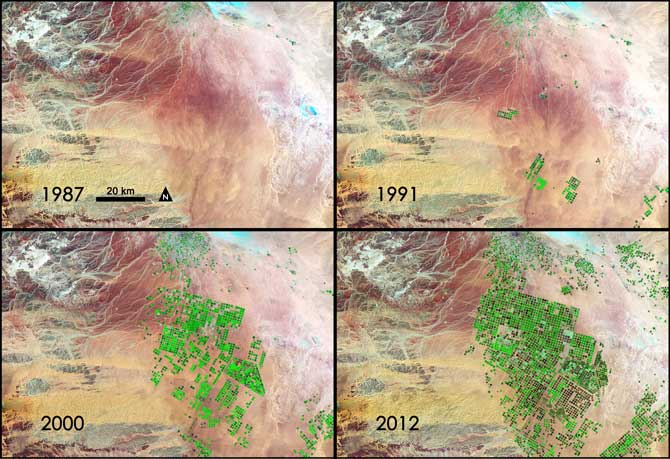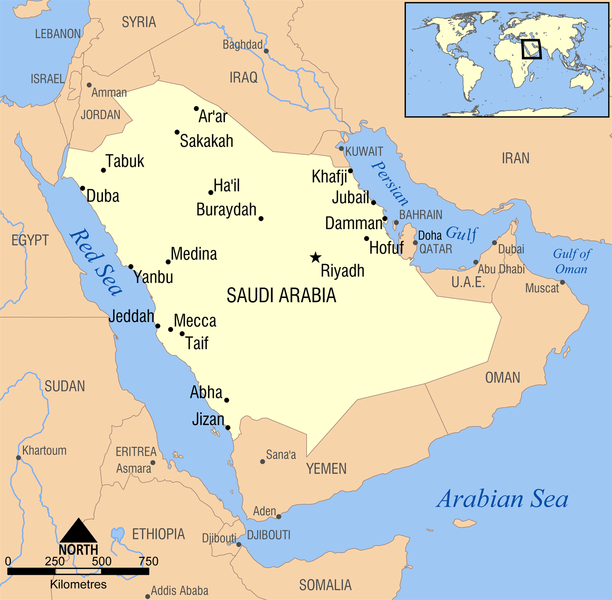The US National Aeronautics and Space Administration last year published a series of photos over past decades showing expansion of farming in Saudi Arabia’s Syrian Desert, using underground aquifers as a water source. This fossil water is a non-renewable resource and will be gone, at this rate in 50 years.

NASA writes:
“In this series of four Landsat images, the agricultural fields are about one kilometer across. Healthy vegetation appears bright green while dry vegetation appears orange. Barren soil is a dark pink, and urban areas, like the town of Tubarjal at the top of each image, have a purple hue. Credit: NASA/GSFC
The green fields that dot the desert draw on water that in part was trapped during the last Ice Age. In addition to rainwater that fell over several hundred thousand years, this fossil water filled aquifers that are now buried deep under the desert’s shifting sands.
Saudi Arabia reaches these underground rivers and lakes by drilling through the desert floor, directly irrigating the fields with a circular sprinkler system. This technique is called center-pivot irrigation.
Because rainfall in this area is now only a few centimeters (about one inch) each year, water here is a non-renewable resource. Although no one knows how much water is beneath the desert, hydrologists estimate it will only be economical to pump water for about 50 years.”

h/t Ghanem Nuseibeh @gnuseibeh



 © 2026 All Rights Reserved
© 2026 All Rights Reserved